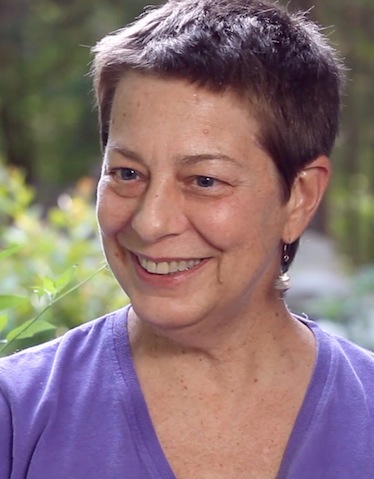I caught up with Nancy Brown at 3 am at the Wake County Detention Center. She had been released hours earlier, but the person with whom she was riding home had not yet been released. She recounted her experience of being arrested by Capitol Police as part of the “Moral Mondays” civil disobedience campaign led by Rev. Dr. William Barber of the North Carolina NAACP. Annabel Park and I then visited Nancy’s home six days later.
NOTE: Nancy Brown will be a guest on “The Middle Ground,” on Coffee Party Radio tonight at 8 pm ET.
 New laws would target the parents of college students who register to vote with tax increases (parents would not be able to claim their children as dependents if they register to vote near their campus, rather than at their parents’ address), end Sunday voting and same-day registration for early voting, and, reduce the number of early voting days resulting in long lines at polling places in well-populated areas. A “voter ID” law would create a financial and logistical barrier for hundreds of thousands of American citizens who wish to continue voting, but do not own cars, or were born many years ago before hospital births were commonplace.
New laws would target the parents of college students who register to vote with tax increases (parents would not be able to claim their children as dependents if they register to vote near their campus, rather than at their parents’ address), end Sunday voting and same-day registration for early voting, and, reduce the number of early voting days resulting in long lines at polling places in well-populated areas. A “voter ID” law would create a financial and logistical barrier for hundreds of thousands of American citizens who wish to continue voting, but do not own cars, or were born many years ago before hospital births were commonplace.
Meanwhile, tax increases would hit the poor and the middle class, while tax breaks are being afforded to two dozen wealthy families. Assistance from the federal government is being refused, including unemployment benefits and Medicaid expansion that would have helped half a million people get health insurance.
Nancy’s primary concern was for the poor — people who are worse off than she, even though she said she had never earned more than $20,000 in a year. Nancy lost her husband at a young age and makes her living as a gardener. In her interview with Annabel, she talked about formative experiences involving race relations. She mentions “white people” who can be a bridge between the races, recognizing perhaps that she herself is modeling this kind of civic engagement by joining a movement that was triggered by actions by the North Carolina NAACP. Moral Mondays protests in Raleigh North Carolina are as diverse and dynamic as the state’s population is becoming. Historians and political scientists point to the demographic shift taking place in the state (and, Barack Obama’s victory here in 2008) as a catalyst for the aggressive policies to restrict voting, and financially undermine the poor, the working class, and the middle class.
This video has a comprehensive list of the voting restrictions being proposed by Republicans in the North Carolina General Assembly:
Please support Story of America with a tax deductible donation.
